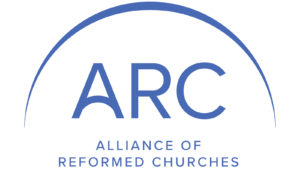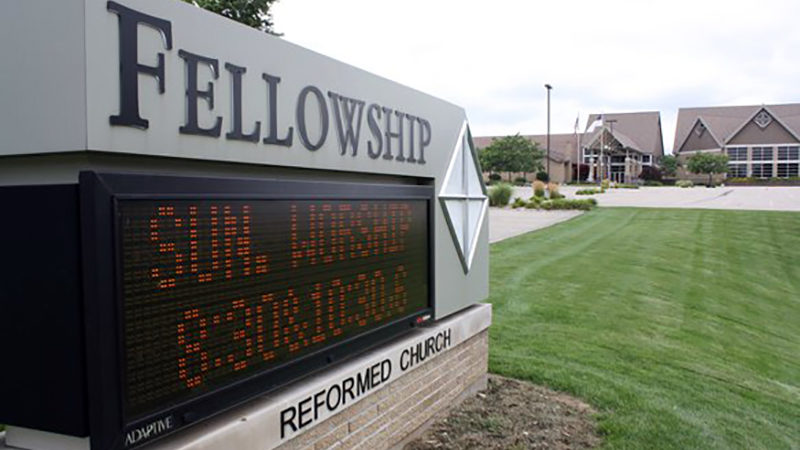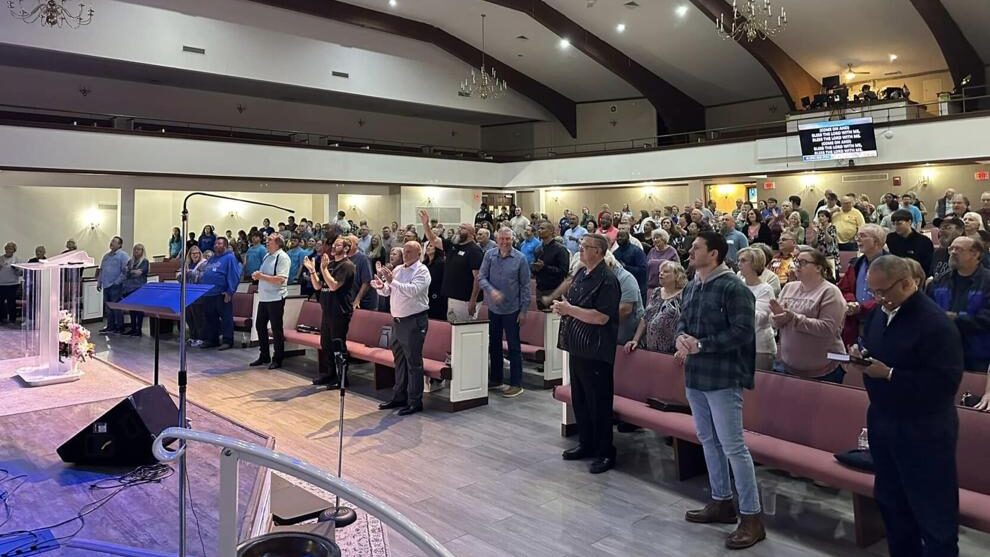It has been a little over a month (Jan.1) since 43 theologically conservative congregations of the Reformed Church in America split from the national denomination and joined a new group, the Alliance of Reformed Churches.
 The split comes in part over theological differences regarding same-sex unions and the ordination of LGBTQ clergy and leaves many who remain in the RCA concerned for the denomination’s survival.
The split comes in part over theological differences regarding same-sex unions and the ordination of LGBTQ clergy and leaves many who remain in the RCA concerned for the denomination’s survival.
The structure of the RCA includes a General Synod that sets the direction and tone for denominational ministry. Churches do not have to follow the General Synod’s recommendations, and regional church groups have authority over matters such as discipline and ordination.
All RCA churches follow the Book of Church Order, also known as the BCO, a document that includes the RCA’s Constitution, liturgy and doctrinal standards.
But there’s nothing in the BCO that explicitly addresses sexuality, David Komline, associate professor of church history at Western Theological Seminary of the Reformed Church in America, told Episcopal News Service in October.
“The General Synod has repeatedly made statements that are more traditional in orientation about sexuality, but those are just statements. There are no mechanisms in place to hold people accountable to these statements,” Komline said.
In 2016, conservative RCA members pushed for the General Synod to amend the BCO to define marriage as between a woman and a man, but the measure failed. The majority of LGBTQ-affirming churches in the RCA are in the Northeast and West.
Before the split, the nearly 400-year-old RCA had fewer than 200,000 members and 1,000 churches.
‘Grace-filled separation’
At least 125 churches from various denominations are in conversation with ARC leaders about joining.
“I really think the mass exodus of all these conservative churches is going to throw the RCA into a really difficult financial situation,” Steven Rodriguez, an RCA church planter in Brockport, New York, told Religion News Service. “I doubt the RCA will be financially sustainable for much longer.”
In October, the General Synod adopted measures for “grace-filled separation” with departing churches and to appoint a team to develop a restructuring plan for those that remain.

The new denomination, besides not affirming same-sex marriage or ordination of LGBTQ individuals, will have a strong emphasis on church planting and feature a flexible organizational model meant to foster theological alignment and efficient decision-making, according to ARC leaders.
“We have a passion for this remnant of believers to become a part of reformation and revival in the Northern Hemisphere,” said Tim Vink, the new denomination’s director of spiritual leadership and outreach. “Part of our strategic thinking is designing things for the 21st century that allows a multiplication of gospel-saturated churches and a multiplication of disciples.”
Other conservative-leaning churches in the RCA, as well as those in the Presbyterian Church in Canada, Christian Reformed Church in North America and Presbyterian Church in America, are also discerning whether to join the ARC, according to Vink.
Other groups, such as the Kingdom Network, a group of five churches in Indiana and Illinois, have formed and expect to absorb conservative churches leaving the RCA.
‘Safe landing pad for churches’
Vink said the new alignment will promote growth. “We want to be a safe landing pad for churches in the near term, but in the long term, want to be a serious launching pad for the church, in mission, to the world,” he said.
The creation of ARC, paired with the RCA’s decisions at General Synod, has put many RCA congregations in the position of deciding whether to stay in the RCA.
Yet the RCA is also committed to allowing departing churches to leave on good terms.
“We want to bless our brothers and sisters who are choosing to find another denominational family,” said Christina Tazelaar, director of communication for the RCA.
The launch of ARC is part of a larger realignment within North American Protestantism. The last two decades have seen conservative Episcopalians, Presbyterians and Lutherans form their own denominations over LGBTQ inclusion and sexuality, and the United Methodists are scheduled to consider a denominational split in the fall.
Another group, the Association of Related Churches, also uses the ARC acronym. The Association of Related Churches, launched in 2001, focuses on church planting and training for new church leaders. The ARC is evangelical and theologically conservative overall, but churches are considered nondenominational.
Each church within the Association of Related Churches is “legally autonomous, independently led, separately operated and solely accountable to their leadership, independent of the ARC organization,” according to the association’s website.
EDITOR’S NOTE — This story has been compiled with reporting from Religion News Service and The Baptist Paper.








